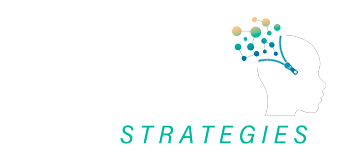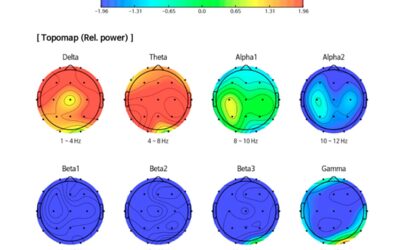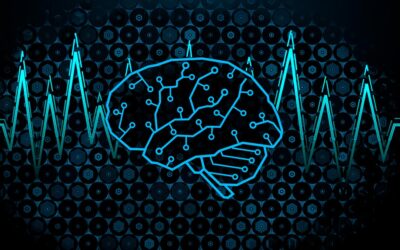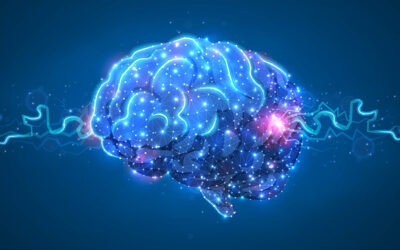In recent years, the field of neurofeedback has garnered significant attention for its potential in enhancing brain function and addressing various mental health conditions. Obtaining certification in neurofeedback is a worthwhile investment for practitioners seeking to excel in this burgeoning field. It not only validates their expertise but also equips them with the knowledge, skills, and ethical framework necessary to make a meaningful impact on the lives of their clients. As neurofeedback continues to gain recognition as a valuable therapeutic modality, certified practitioners are in demand and poised to play a pivotal role in promoting brain health and well-being.
Table of Contents
- Certification Options
- Experience and Training Requirements
- Certification Process Application Procedure
- Conclusion
Neurofeedback, also known as EEG biofeedback, is a non-invasive technique that utilizes real-time monitoring of brainwave activity to help individuals regulate their brain function. By providing feedback on brainwave patterns, individuals can learn to self-regulate and optimize brain functioning, leading to improvements in various cognitive and emotional processes.
Here are some compelling reasons why obtaining certification in neurofeedback is advantageous:
- Expertise and Credibility: Certification demonstrates a practitioner’s commitment to excellence and competence in the field of neurofeedback. It signifies that they have undergone rigorous training and have met specific standards of proficiency, enhancing their credibility among clients and peers.
- Enhanced Skills and Knowledge: Neurofeedback certification programs encompass comprehensive training in EEG technology, brain anatomy, neurophysiology, and the principles of neurofeedback therapy. This deep understanding equips practitioners with the knowledge and skills necessary to effectively assess clients, design personalized treatment protocols, and interpret neurofeedback data accurately.
- Expanded Professional Opportunities: Certification opens doors to a wide range of professional opportunities in various settings, including private practice, clinics, hospitals, research institutions, and educational facilities. Certified neurofeedback practitioners are in high demand as the effectiveness of neurofeedback gains recognition in treating conditions such as ADHD, anxiety, depression, PTSD, and sleep disorders.
- Ethical Standards and Best Practices: Certified practitioners adhere to established ethical guidelines and best practices in the delivery of neurofeedback services. They prioritize client safety, confidentiality, and informed consent, ensuring that the therapeutic process is conducted with integrity and professionalism.
- Continuing Education and Growth: Certification is not the endpoint but rather the beginning of a journey of continuous learning and professional development. Certified practitioners engage in ongoing education, attend conferences, and stay abreast of the latest advancements in neurofeedback research and technology, enabling them to refine their skills and offer cutting-edge treatments to their clients.
- Client Trust and Satisfaction: Clients are more likely to seek neurofeedback services from certified practitioners due to the assurance of quality care and expertise. Certification instills trust and confidence in clients, leading to higher satisfaction rates and better treatment outcomes.
Certification Options
Becoming certified in Neurofeedback involves didactic training as well as hands-on experience. There is only one professional organization committed to the certification of healthcare practitioners: The Biofeedback Certification International Alliance, or BCIA, which offers certification in both Biofeedback and Neurofeedback.
In addition to the professional certification process through the BCIA, there are excellent didactic training programs that are accredited by the BCIA to fulfill this requirement. The NeuroTraining Strategies online course in Neurofeedback offers education in all aspects of Neurofeedback implementation:
- Basic electrophysiology
- Hands-on videos depicting the use of neurofeedback equipment, instrumentation and electronics
- Database analysis
- Developing treatment protocols
This course features lively, instructional narrated videos that the student can complete at their own pace. It has assisted many healthcare practitioners to make the transition from their current field of practice to a full-time Neurofeedback practice.
Experience and Training Requirements
Neurofeedback Professional Entry Level Certification
This certification is open to professionals who can document a minimum of a BA/BS degree in a BCIA-approved health care field completed at a regionally accredited academic institution (an Accredited Institution of Post-secondary Education as determined by the American Council on Education).
BCIA-approved health care fields include psychology, medicine, nursing (including two-year registered nurses with license, not LVNs or LPNs), physical therapy, occupational therapy, social work, counseling, marriage family therapy, rehabilitation, chiropractic, recreational therapy, physician’s assistant (with certification or license), exercise physiology, speech pathology, and sports medicine. The following fields require a master’s degree: music therapy and counseling education (MEd in counseling).
When using neurofeedback to treat a medical or psychological disorder, you are required to hold a current license/credential issued by the state in which you practice in a BCIA-approved health care field. Without this license/credential, you must agree to work under the legal supervision of an appropriately credentialed health care professional when working with a medical or psychological disorder. This supervisor should have training and experience with neurofeedback and clinical experience with the populations and disorders being treated. This does not apply to those who work only in peak/optimal performance.
Excerpt from the Biofeedback Certification International Alliance (BCIA) which regulates certification for Neurofeedback practitioners. https://www.bcia.org/nf-entry-level
Specialized Training Requirements for certification in Neurofeedback (NFB)
1. Neuroanatomy/Neurophysiology/Physiological Psychology University Course
A comprehensive course in neuroanatomy, neurophysiology, physiological psychology, or course(s) that provide a sound basis for the brain and how it functions, taken from a regionally accredited academic institution or a BCIA-approved provider within the last 15 years is required. **Note: While a review of neuroanatomy is included in the didactic education requirement below, a separate university course is required.
2. Didactic Training
The BCIA (Biofeedback Certification International Alliance) certifies qualified providers to offer 36-hour didactic courses for clinically-licensed professionals to obtain a certification in Neurofeedback. These courses may be offered in person or online. The course providers must be accredited by the BCIA to provide content in the following Blueprint of Knowledge areas:
- Orientation to Neurofeedback – 4 hours
- Basic Neurophysiology & Neuroanatomy – 4 hours
- Instrumentation & Electronics – 4 hours
- Research Evidence Base for Neurofeedback – 2 hours
- Patient/Client Assessment – 4 hours
- Developing Treatment Protocols – 6 hours
- Treatment Implementation – 6 hours
- Current Trends in Neurofeedback – 2 hours
- Ethical & Professional Conduct – 2 hours
In 2023, the BCIA launched a streamlined 20-hour Blueprint of Knowledge didactic content that leads to the certification for neurofeedback TECHNICIANS. This certification applies to non-clinically licensed individuals who serve as neurofeedback technicians, working under the supervision of a licensed BCIA certified Neurofeedback Practitioner. If your future plans could include obtaining a full BCIA certification, you may wish to consider taking the original 36-hour course.
Certification Process Application Procedure
The application procedure for entry-level Neurofeedback certification is simple: Go to the BCIA website to file the application.
Filing an Application for BCIA Certification
Candidates must file an application and pay all fees prior to considering the exam. The signature indicates your agreement to abide by the BCIA Professional Standards and Ethical Principles for Biofeedback and follow the appropriate rules and regulations of your profession and state/region.
Fees include:
- $150 filing fee which must be paid at the time the application is submitted. The filing fee will be reduced to $50 if an applicant can document current enrollment in an advanced degree program at a regionally accredited academic institution in a BCIA-approved health care field. You must request the student fee and provide proper documentation (current transcript or student ID) to receive the reduced rate.
- $300 certification fee prior to scheduling the exam. If this is your second BCIA certification (in addition to either BCIA Neurofeedback, HRV or PMDB), the filing fee is the same, but the certification fee is reduced to $100).
All fees are non-refundable and must be in US funds and paid by check, money order, or credit card.”
Conclusion
In conclusion, satisfied professionals who have taken the time and gone to the expense of introducing Neurofeedback into their healthcare practices testify to the benefits:
- Expanded Service Offerings: Neurofeedback adds a unique and in-demand service to your practice, attracting new clients and retaining existing ones.
- Increased Revenue Streams: Offering neurofeedback sessions can generate additional income for your practice, enhancing financial stability.
- Diversification of Client Base: Neurofeedback appeals to a wide range of clients, including those seeking alternative or complementary therapies, expanding your potential client base.
- Enhanced Treatment Outcomes: Integrating neurofeedback into treatment plans can lead to improved outcomes for various neurological and psychological conditions, increasing patient satisfaction and referrals.
- Competitive Advantage: Being one of the few practices in your area offering neurofeedback can give you a competitive edge over other healthcare providers, positioning your practice as innovative and forward-thinking.
- Professional Development: Obtaining neurofeedback certification demonstrates your commitment to staying current with emerging treatments and technologies, enhancing your professional reputation.
- Personal Fulfillment: Seeing positive changes in your patients’ lives through neurofeedback therapy can be personally rewarding, fostering a sense of fulfillment in your practice.




